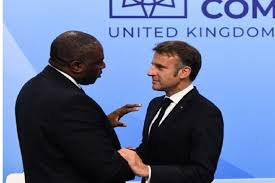UK Foreign Secretary David Lammy has confirmed that the United Kingdom is engaged in discussions with France and Saudi Arabia over the potential recognition of a Palestinian state, as part of preparations for a conference in June. The event, convened by France and Saudi Arabia, aims to revive the political pathway toward a two-state solution in the Middle East.
This marks the first time the UK has publicly acknowledged it is exploring a recognition process with France. The possible recognition of Palestine by two permanent members of the UN Security Council—France and the UK—would send a powerful diplomatic signal. However, such a move faces significant challenges, including uncertainty around France’s exact proposal and whether recognition could be integrated into a credible and practical roadmap toward a two-state resolution, which the Israeli government currently opposes.
Speaking to the House of Lords International Relations Committee, Lammy emphasized that the UK’s intention is to recognize a Palestinian state when it would have meaningful impact, not merely as a symbolic gesture. He expressed disappointment that recent recognitions by some European nations had made little difference on the ground.
While more than 160 countries have already recognized Palestine—including Spain, Norway, and Ireland—Lammy stated, “No one has a veto on when the UK recognizes that Palestinian state. We have always said that recognition is not an end in itself, and we would prefer it to be part of a wider process toward a two-state solution.”
He acknowledged that President Emmanuel Macron of France has been vocal on the issue and confirmed that discussions with both France and Saudi Arabia are ongoing. Lammy also noted that, during recent talks with Qatar, he emphasized the need for Hamas to exit governance in Gaza and relocate—likely to a third country—as part of any long-term settlement. A demilitarization process, he added, would be essential, drawing a parallel with Northern Ireland’s post-Good Friday Agreement arrangements.
Lammy was direct in his assessment of the prolonged statelessness of Palestinians, saying, “It is unacceptable for any group of people to have lived with no state for longer than I’ve been alive.”
He also voiced concern over the accelerating pace of Israeli settlement expansion, calling the levels of violence in the West Bank “shocking.” He pointed out that 59 outposts had been established in the past year alone—compared to an average of just seven per year over the past 25 years—undermining hopes for a viable two-state solution.
Speculation about Palestine’s recognition surged after Macron returned from Egypt on April 9, suggesting France would likely recognize a Palestinian state at the June summit. If it proceeds, it would mark the first such recognition by a G7 country. Macron later clarified that any move would be part of a broader effort to trigger other recognitions—including of Israel by countries that currently do not acknowledge it—leaving the door open to delay if momentum stalls.
Israeli Prime Minister Benjamin Netanyahu reacted swiftly, phoning Macron to warn that recognizing Palestine would be a “victory for Hamas and Iran.”
Meanwhile, former U.S. President Donald Trump is expected to visit Saudi Arabia later this month. Riyadh is reportedly prepared to tell him that normalization of relations with Israel—once a key Trump foreign policy goal—is impossible without a credible path to a two-state solution.
Michel Duclos, a senior adviser at the Paris-based think tank Institut Montaigne, said the credibility of France’s leadership on the issue is on the line. He suggested that if the June summit produces little more than a set of proposals or a roadmap, France may face a tough decision: whether to proceed with recognition or risk damaging its diplomatic standing by delaying further.
Lammy also expressed frustration over Israel’s 60-day ban on humanitarian aid entering Gaza, describing the situation as “horrendous.” While he proposed no new UK actions, he said the scale of suffering, humanitarian need, and loss of life was “dire.” He confirmed that he had personally raised these concerns with Israeli Foreign Minister Gideon Saar during their meeting in London two weeks ago.

